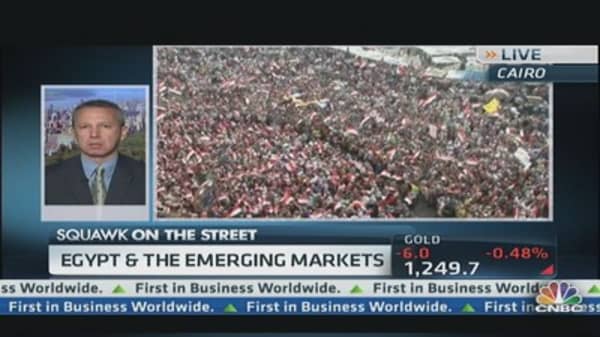The recent sell-off in global markets has pushed valuations for emerging market stocks to their cheapest level this year, according to Citi.
The price-to-earnings (P/E) ratio of the MSCI Emerging Markets Index is currently below 10 - levels not seen since November 2012 - and Citi recommends investors regain exposure to these stocks now instead of waiting for a catalyst to drive a turnaround.
"We think the situation has to get really dire in EM [emerging markets] to justify equities at these multiples. We do not expect that to happen. Of course EM economies have their problems, but it seems that share prices are already discounting something much worse," strategists at the bank wrote in a note published late Tuesday.
(Read More: Emerging Markets Growth Hits Lowest Since Financial Crisis)
Emerging markets have been hammered in the recent weeks on fears over the U.S. Federal Reserve scaling back on its extraordinary monetary support, leading to a widespread sell-off in bonds, currencies and equities. The MSCI Emerging Markets Index has declined 11 percent since early May.
Historically, buying into emerging markets at current cheap levels has provided solid returns over a 12-month horizon, the bank added.
Developed equity markets including the U.S. and Japan have not offered buying opportunities at sub-10 times price-to-earnings since 2000, not even during the global financial crisis, according to Citi.
(Read More: Emerging Market Allocations Lowest Since 2008)
While many investors fear that emerging market equities are a value trap given worsening economic fundamentals including slowing growth and widening current account deficits, Markus Rosgen, head of Asia-Pacific equity strategy at Citi believes these concerns are overdone.





